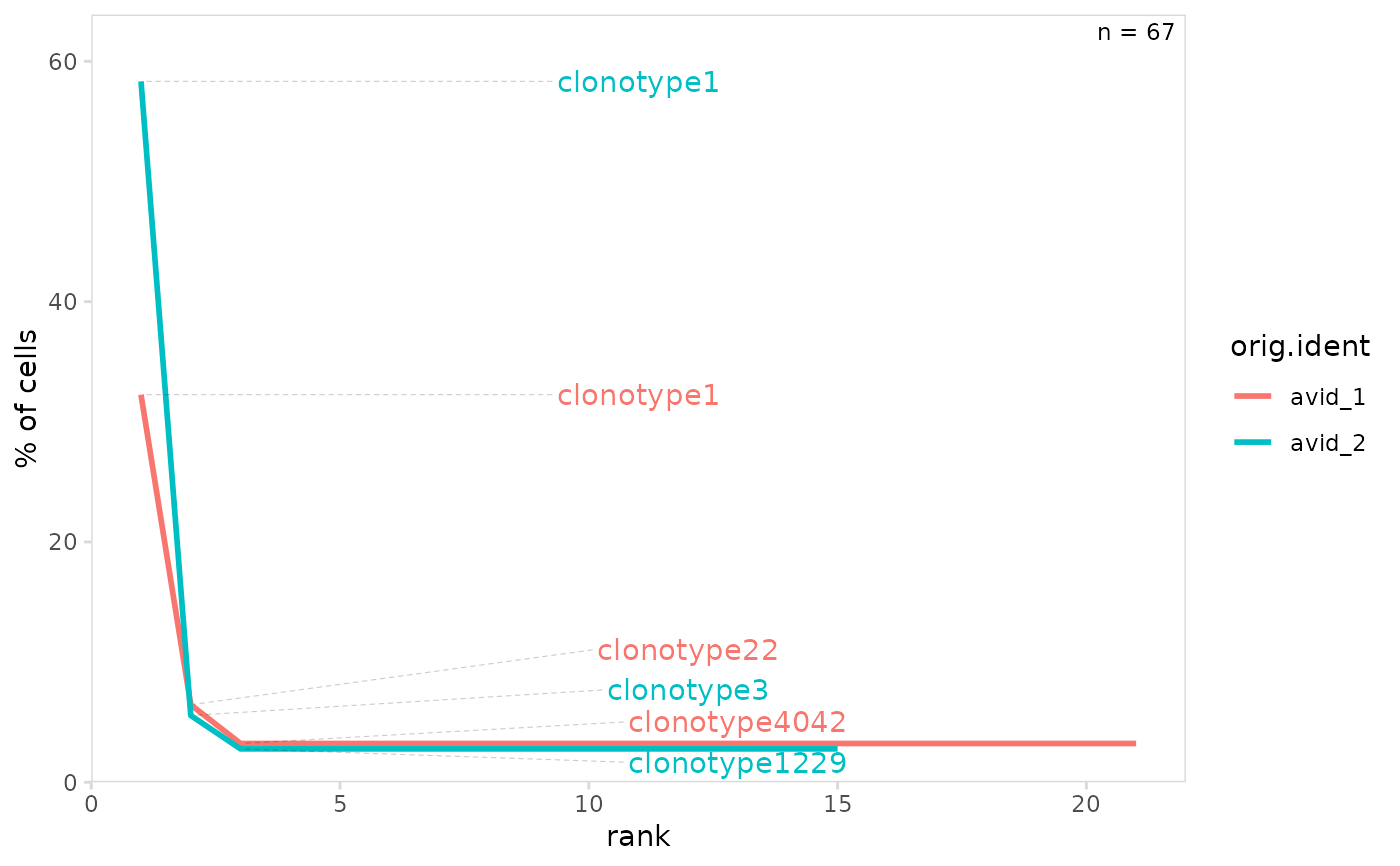Plot clonotype frequency
Usage
plot_clone_frequency(
input,
data_col = global$clonotype_col,
cluster_col = NULL,
group_col = NULL,
clones = NULL,
method = "bar",
units = "percent",
plot_colors = NULL,
plot_lvls = names(plot_colors),
trans = "identity",
panel_nrow = NULL,
panel_scales = "free_x",
n_label = "corner",
label_params = list(),
...
)Arguments
- input
Single cell object or data.frame containing V(D)J data. If a data.frame is provided, the cell barcodes should be stored as row names.
- data_col
meta.data column containing clonotype IDs to use for calculating clonotype abundance
- cluster_col
meta.data column containing cluster IDs to use for grouping cells when calculating clonotype frequencies. Clonotypes will be plotted separately for each cluster.
- group_col
meta.data column to use for grouping cluster IDs present in cluster_col. This is useful when there are multiple replicates or patients for each treatment condition. This is only applicable when
methodis 'line'.- clones
An integer specifying the number of clonotypes to show, or a vector giving the names of clonotypes to include. If method is set to 'line', this will specify the clonotypes to label.
- method
Method to use for plotting, possible values include:
'bar', create a bargraph
'line', create a rank-abundance plot
- units
Units to plot on the y-axis, either 'frequency' or 'percent'
- plot_colors
Character vector containing colors for plotting
- plot_lvls
Levels to use for ordering clusters
- trans
Transformation to use for plotting data, e.g. 'log10'. By default values are not transformed, refer to
ggplot2::continuous_scale()- panel_nrow
The number of rows to use for arranging plot panels, use this when separate bar graphs are created for each cell cluster
- panel_scales
Should scales for plot panels be fixed or free. This passes a scales specification to ggplot2::facet_wrap, can be 'fixed', 'free', 'free_x', or 'free_y'. 'fixed' will cause panels to share the same scales. Use this when separate bar graphs are created for each cell cluster.
- n_label
Location on plot where n label should be added, this can be any combination of the following:
'corner', display the total number of cells plotted in the top right corner, the position of the label can be modified by passing
xandyspecifications with thelabel_paramsargument'legend', display the number of cells plotted for each group shown in the plot legend
'none', do not display the number of cells plotted
- label_params
Named list providing additional parameters to modify clonotype and n label aesthetics, e.g. list(size = 4, color = "red")
- ...
Additional arguments to pass to ggplot2, e.g. color, fill, size, linetype, etc.
Examples
# Plot clonotype abundance using all cells
plot_clone_frequency(
vdj_sce,
data_col = "clonotype_id"
)
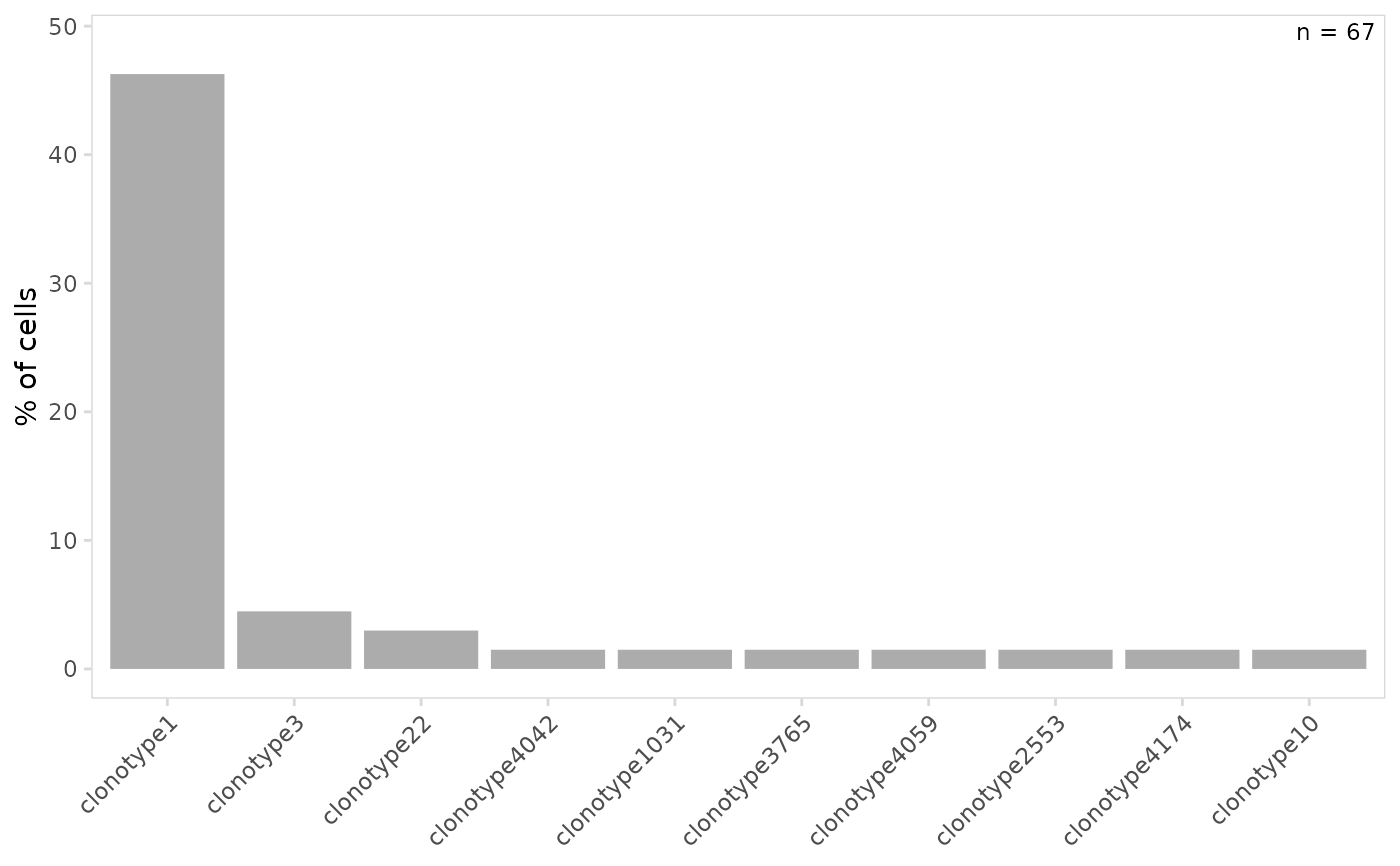 # Plot clonotype abundance separately for each cell cluster
plot_clone_frequency(
vdj_sce,
cluster_col = "orig.ident"
)
# Plot clonotype abundance separately for each cell cluster
plot_clone_frequency(
vdj_sce,
cluster_col = "orig.ident"
)
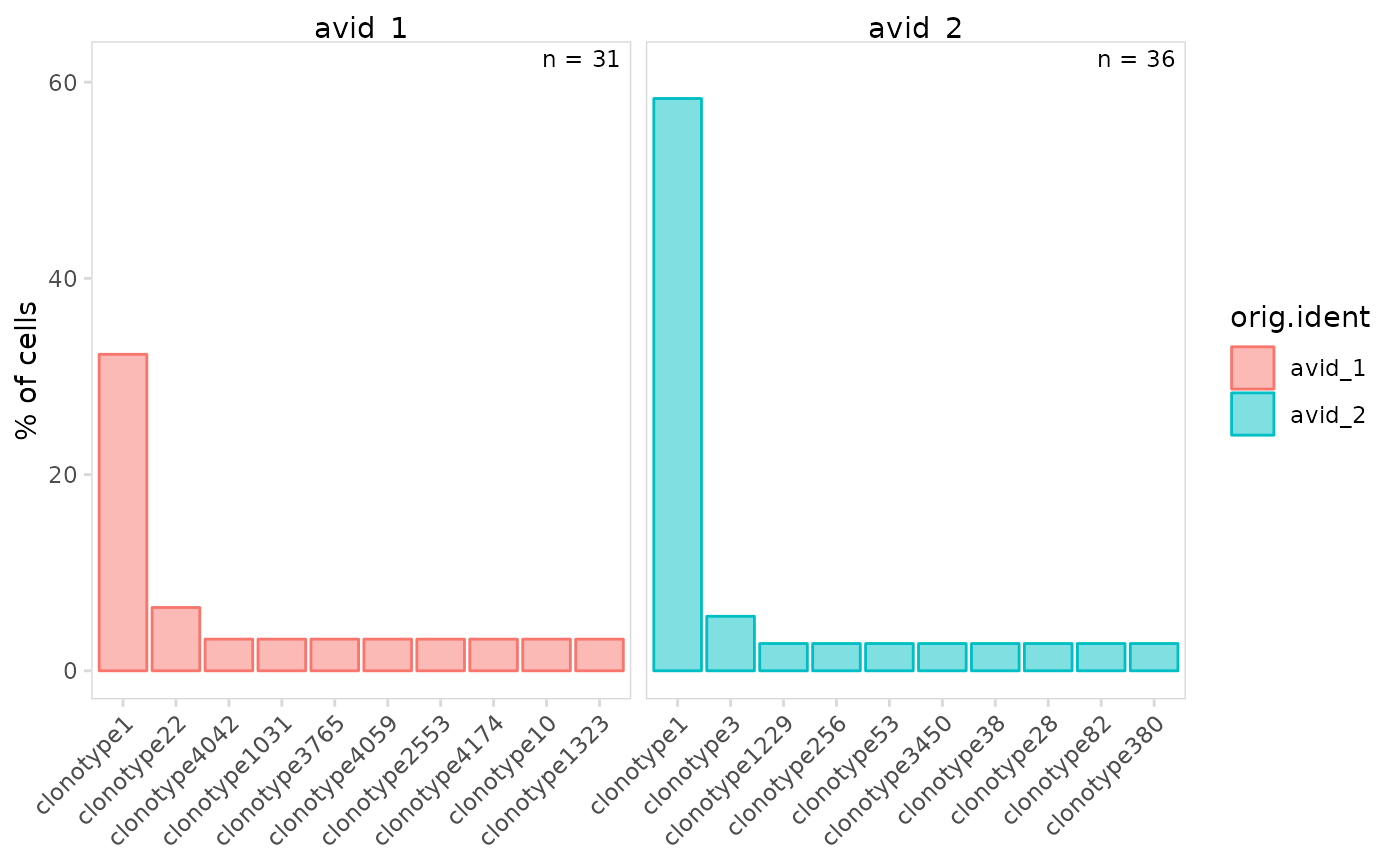 # Plot the frequency of each clonotype instead of percentage
plot_clone_frequency(
vdj_sce,
cluster_col = "orig.ident",
units = "frequency"
)
# Plot the frequency of each clonotype instead of percentage
plot_clone_frequency(
vdj_sce,
cluster_col = "orig.ident",
units = "frequency"
)
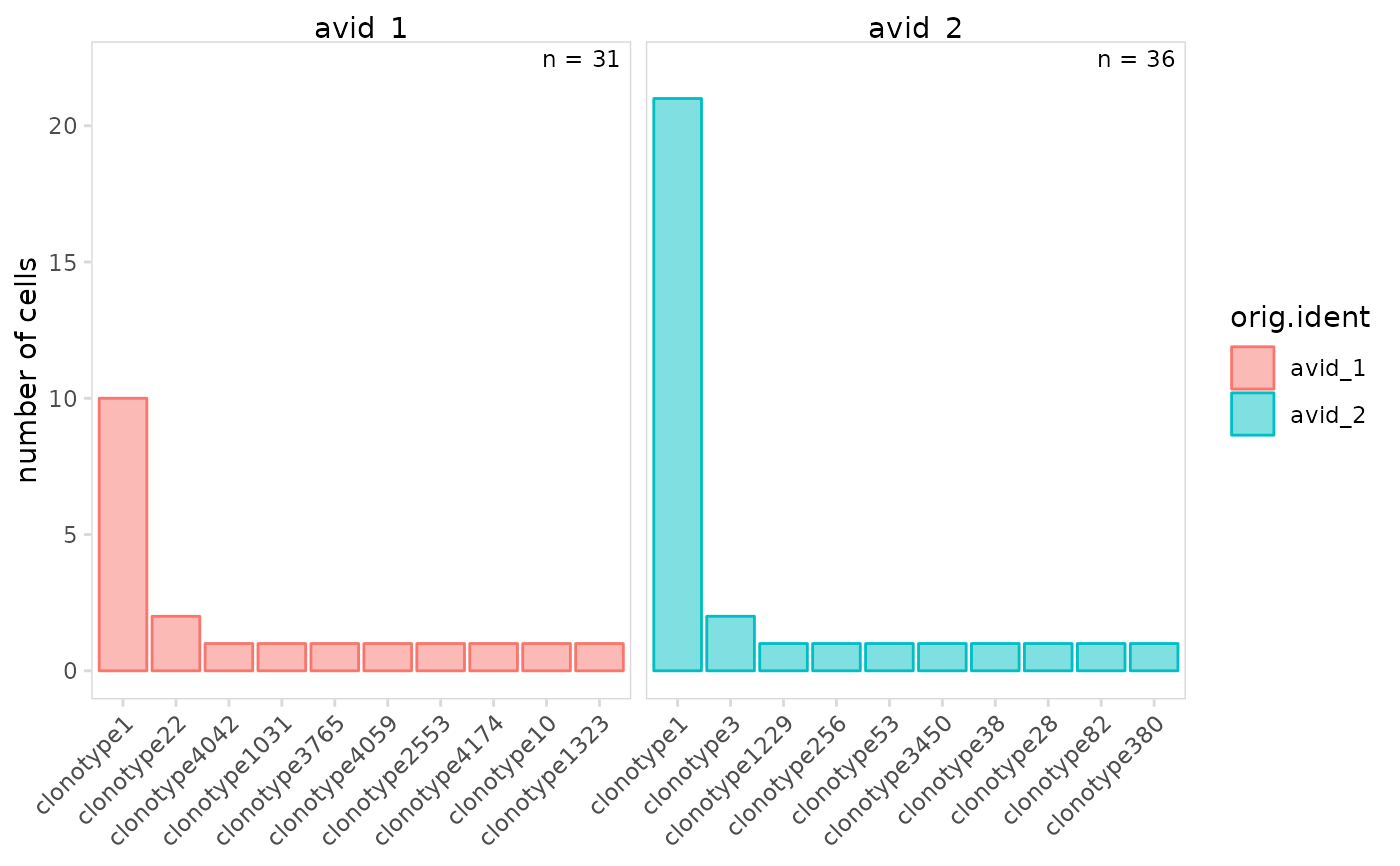 # Specify colors to use for each cell cluster
plot_clone_frequency(
vdj_sce,
cluster_col = "orig.ident",
plot_colors = c(avid_1 = "blue", avid_2 = "red")
)
# Specify colors to use for each cell cluster
plot_clone_frequency(
vdj_sce,
cluster_col = "orig.ident",
plot_colors = c(avid_1 = "blue", avid_2 = "red")
)
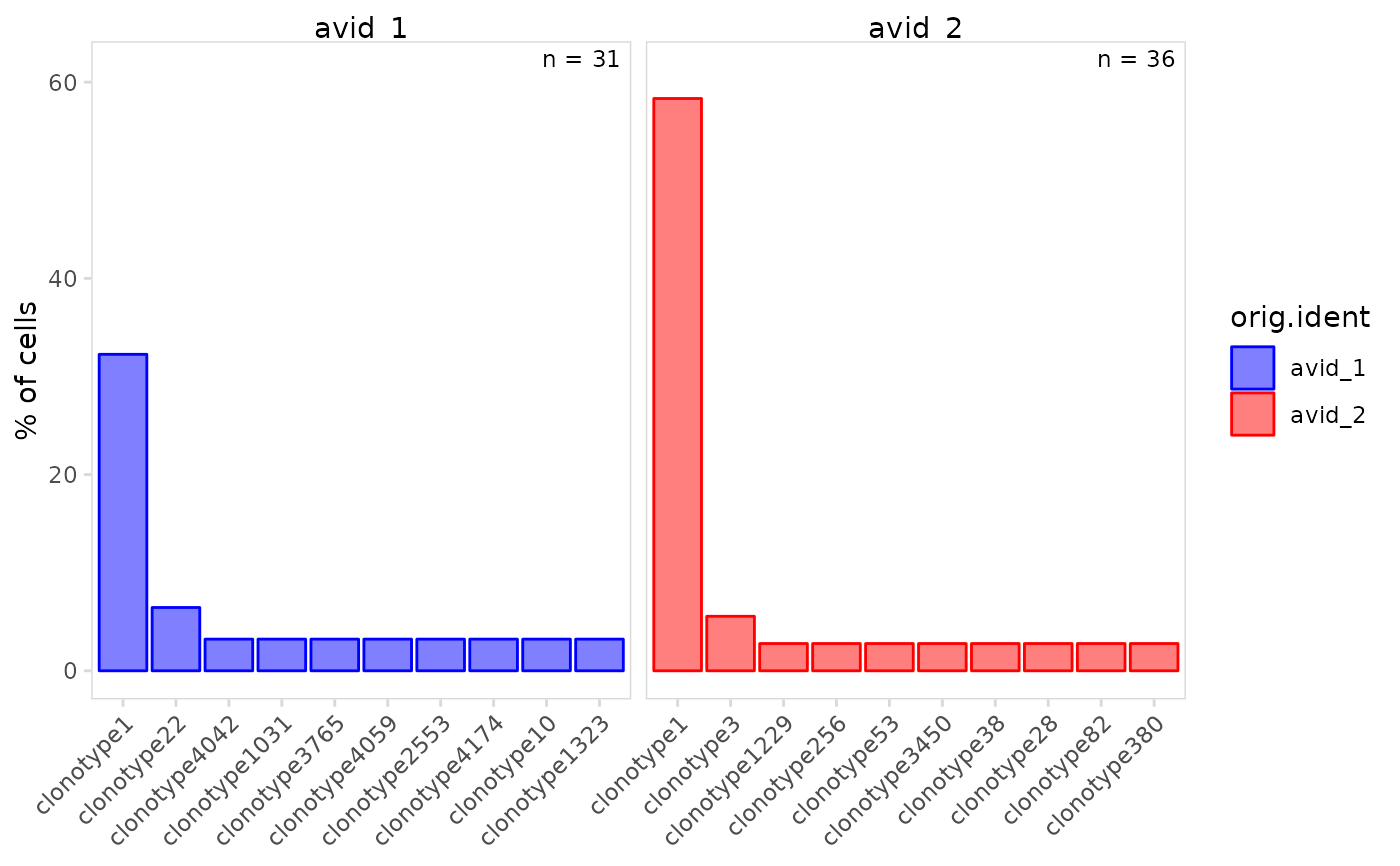 # Specify order to use for plotting cell clusters
plot_clone_frequency(
vdj_sce,
cluster_col = "orig.ident",
plot_lvls = c("avid_2", "avid_1")
)
# Specify order to use for plotting cell clusters
plot_clone_frequency(
vdj_sce,
cluster_col = "orig.ident",
plot_lvls = c("avid_2", "avid_1")
)
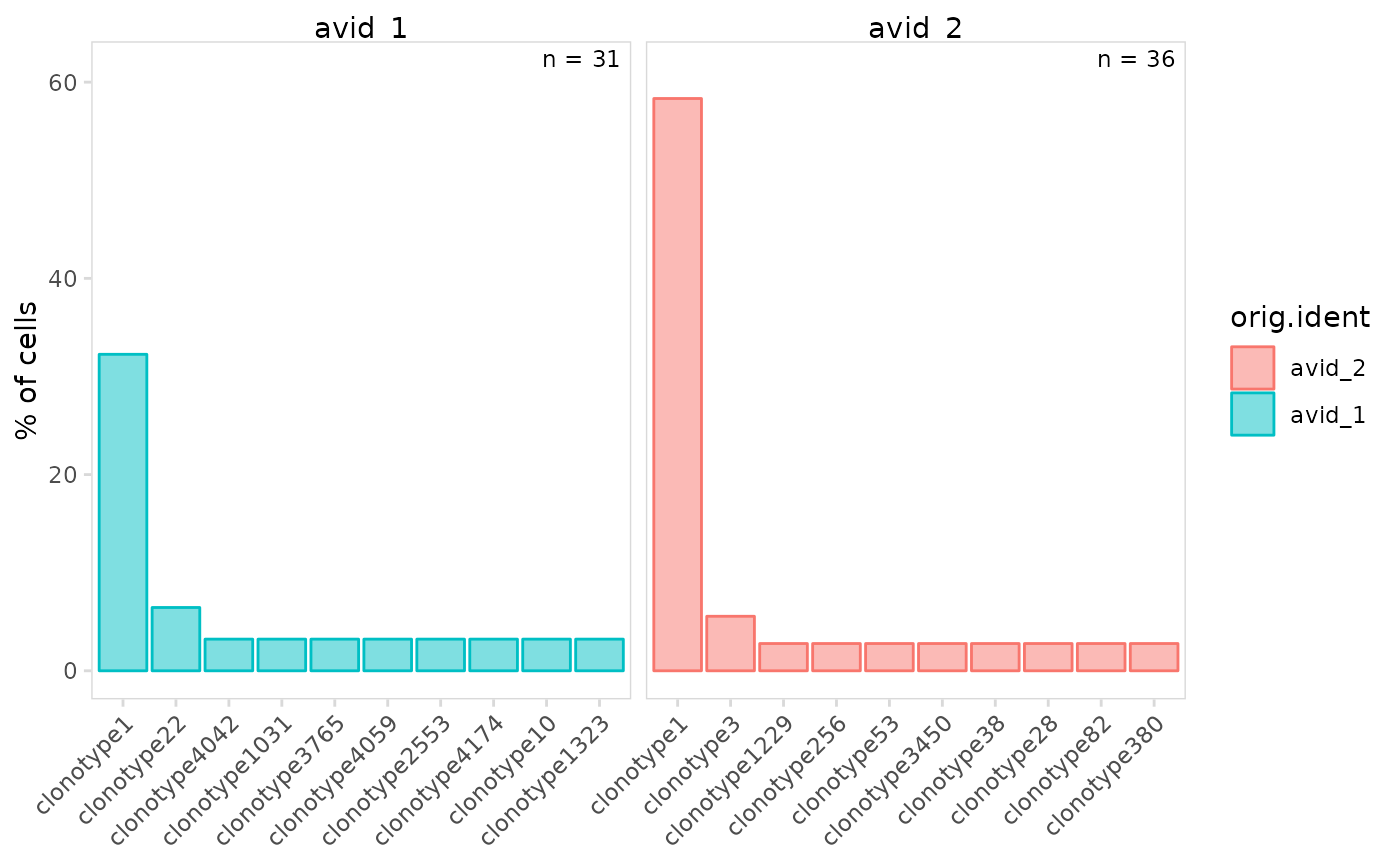 # Specify the number of top clonotypes to plot
plot_clone_frequency(
vdj_sce,
clones = 5
)
# Specify the number of top clonotypes to plot
plot_clone_frequency(
vdj_sce,
clones = 5
)
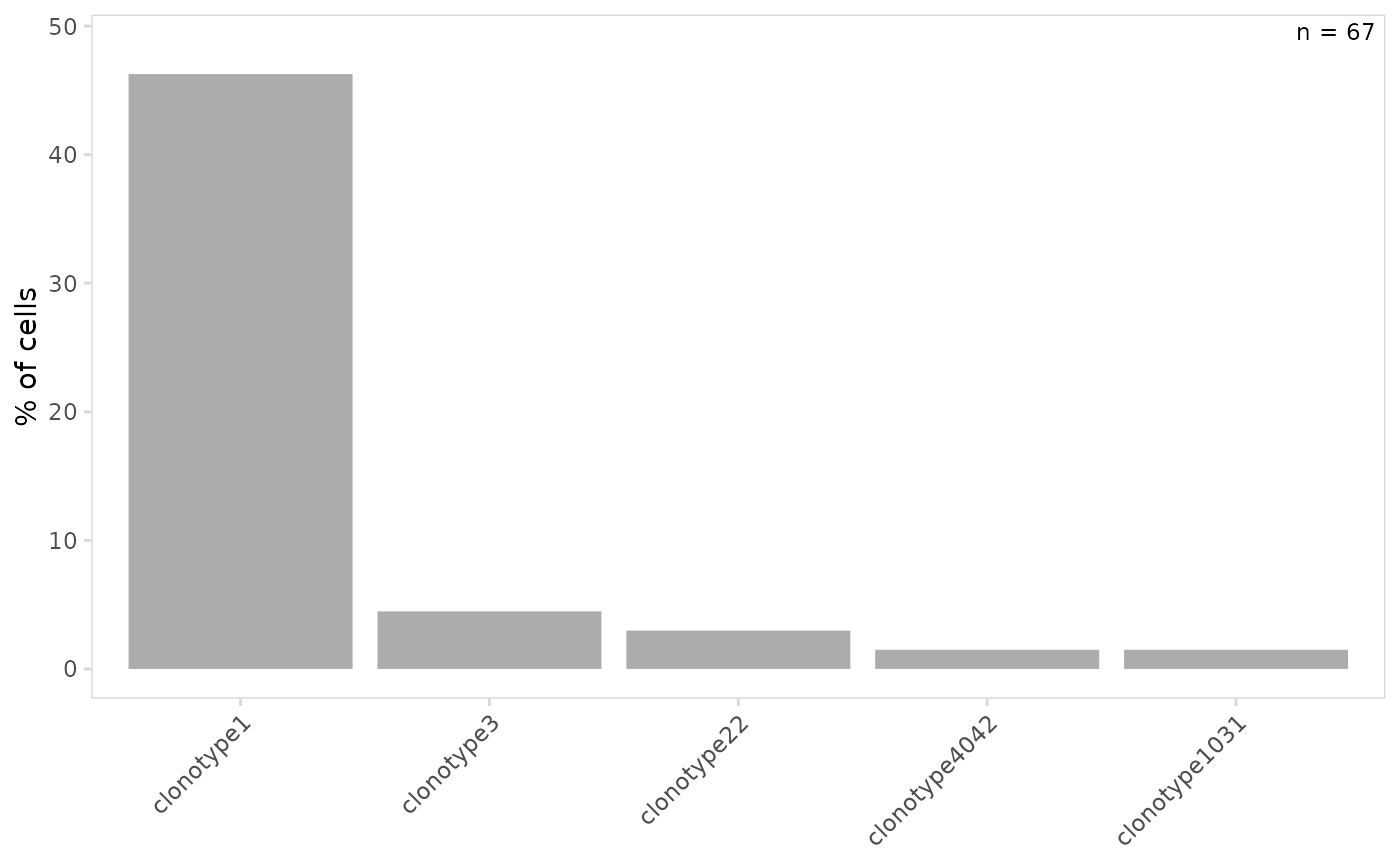 #' # Create line graph
# use clones to set the number of clonotypes to label
plot_clone_frequency(
vdj_sce,
cluster_col = "orig.ident",
method = "line",
clones = 3
)
#' # Create line graph
# use clones to set the number of clonotypes to label
plot_clone_frequency(
vdj_sce,
cluster_col = "orig.ident",
method = "line",
clones = 3
)
